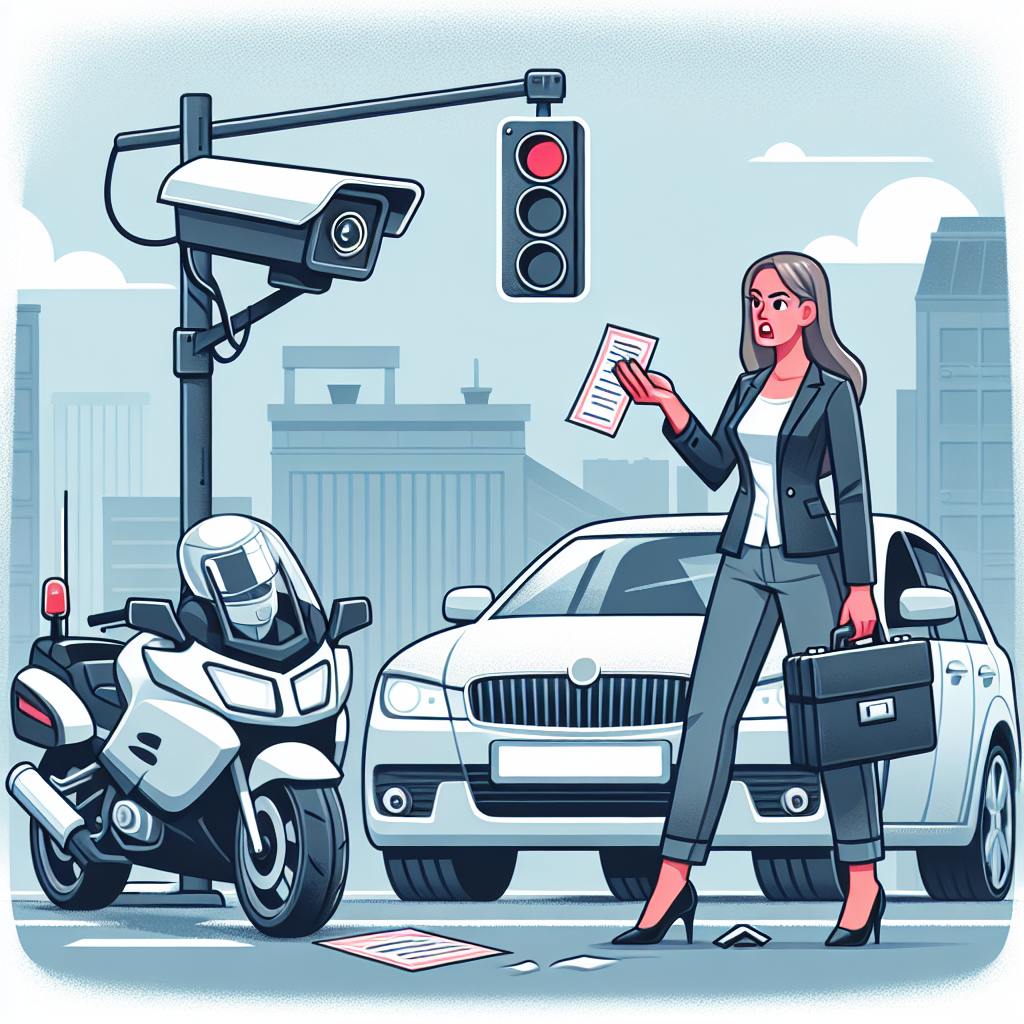Introduction
Receiving a traffic camera ticket can be both frustrating and daunting. However, you don’t have to simply accept the penalty; you have the right to dispute it. This article will guide you through the process of disputing a traffic camera ticket effectively.
Understanding Traffic Camera Tickets
Traffic camera tickets are issued when automated cameras capture a vehicle violating traffic laws, such as running a red light or speeding. The ticket is sent to the vehicle owner by mail, along with photographic evidence of the violation. Here’s a quick overview:
| Type of Violation | Description |
|---|---|
| Red Light Violation | Running a red light |
| Speeding Violation | Exceeding the speed limit |
Steps to Dispute a Traffic Camera Ticket
1. Review the Ticket
Start by carefully reviewing the ticket. Ensure all details, such as your vehicle’s license plate number, date, time, and location of the alleged violation, are accurate. Verify that the photographic evidence clearly shows your vehicle.
2. Gather Evidence
Collect any evidence that supports your case. This may include:
- Photographs: Take pictures of the area where the incident occurred to show that traffic signs or signals were obscured.
- Witness Statements: Obtain written statements from individuals who can attest to your driving behavior at the time of the incident.
- Vehicle Maintenance Records: If a mechanical issue caused the violation, provide maintenance records as evidence.
3. Understand Legal Grounds for Dispute
There are several legal grounds on which you can dispute a traffic camera ticket, such as:
- Improper signage: If traffic signs or signals were obscured, damaged, or missing, you could argue that you were not properly informed of the traffic rules.
- Technical errors: If there is a flaw in the camera or ticketing system, such as inaccurate time stamps or faulty equipment, you can use this as a defense.
- Vehicle was not yours: If you were not driving the vehicle at the time of the violation, or if the vehicle was stolen, you have a valid reason for disputing the ticket.
4. File a Dispute
Follow the instructions on the ticket to file a dispute. This typically involves submitting a written request for a hearing and providing any evidence you have gathered. Be sure to adhere to deadlines and procedural requirements.
5. Prepare for the Hearing
Once your dispute is filed, prepare for the hearing where you will present your case. This may involve:
- Organizing your evidence: Arrange your documents and photographs systematically to present a clear and compelling case.
- Practicing your testimony: Rehearse what you plan to say to ensure you communicate your case effectively.
- Consulting an attorney: If you feel uncertain, seeking legal advice can be beneficial. An attorney can offer insights and help better prepare your defense.
6. Attend the Hearing
On the day of your hearing:
- Arrive early: Ensure you arrive early to avoid any last-minute stress.
- Present your case confidently: Clearly and calmly present your evidence and argument to the judge or hearing officer.
- Be respectful: Maintain a respectful and professional demeanor throughout the hearing.
Post-Hearing Steps
After the hearing, you will receive a decision regarding your dispute. If your ticket is dismissed, remember to request written confirmation. If the decision is not in your favor and you believe there was an error, you may have the option to appeal.
Conclusion
Disputing a traffic camera ticket requires preparation, evidence, and understanding of your legal rights. By following these steps, you can effectively challenge the ticket and potentially avoid penalties. Remember, the key to a successful dispute is thorough preparation and a clear presentation of your case.

